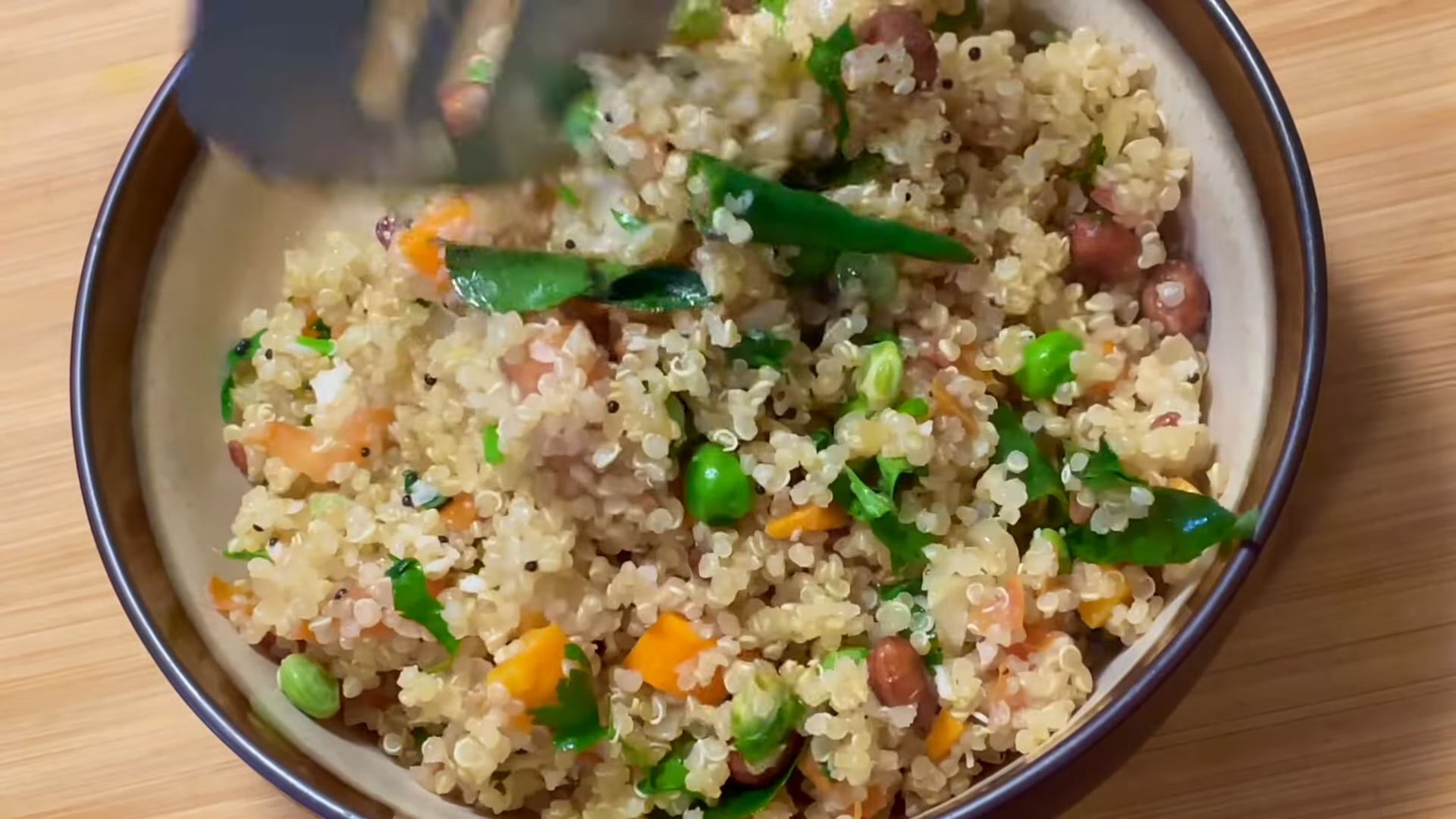Here’s a comparison table showcasing the approximate nutritional values of cooked quinoa and white rice per 100 grams:
| Nutrient | Quinoa | White Rice |
|---|---|---|
| Calories | 120 kcal | 130 kcal |
| Carbohydrates | 21.3 g | 28.7 g |
| Protein | 4.4 g | 2.7 g |
| Fat | 1.9 g | 0.2 g |
| Fiber | 2.8 g | 0.4 g |
| Calcium | 17 mg | 10 mg |
| Iron | 1.5 mg | 0.4 mg |
| Magnesium | 64 mg | 12 mg |
| Potassium | 172 mg | 35 mg |
| Sodium | 5 mg | 1 mg |
| Zinc | 1.2 mg | 0.8 mg |
| Vitamin C | 0 mg | 0 mg |
| Vitamin B-6 | 0.1 mg | 0.1 mg |
| Folate | 42 µg | 8 µg |
Please note that these values are approximate and can vary depending on the specific brand or variety of quinoa and rice. It’s important to note that quinoa generally has higher protein, fiber, and mineral content compared to white rice.
Contents
Health Benefits of Quinoa
Quinoa offers numerous benefits due to its impressive nutritional profile. Here are some of the key benefits of including quinoa in your diet:
High Nutritional Value:
Quinoa is considered a superfood due to its rich nutrient content. It is a complete protein source, containing all essential amino acids, making it highly beneficial for vegetarians and vegans. It is also a good source of fiber, vitamins (such as vitamin B6, thiamin, and folate), minerals (such as magnesium, iron, and phosphorus), and antioxidants.
Gluten-Free and Easy to Digest:
Quinoa is naturally gluten-free, making it suitable for individuals with gluten intolerance or celiac disease. It is also easy to digest compared to other grains, which can be beneficial for those with digestive sensitivities.
Promotes Heart Health:
Quinoa is heart-healthy due to its high fiber and nutrient content. It helps lower cholesterol levels, reduces the risk of cardiovascular diseases, and supports overall heart health.
Manages Blood Sugar Levels:
Quinoa has a low glycemic index, which means it doesn’t cause a rapid spike in blood sugar levels. It can be a beneficial addition to a diabetic or prediabetic diet.
Supports Weight Management:
The combination of protein, fiber, and low calorie content in quinoa can help promote satiety, making you feel fuller for longer. This can aid in weight management and control overeating.
Provides Antioxidant Protection:
Quinoa contains various antioxidants, such as flavonoids and quercetin, which help neutralize harmful free radicals in the body and protect against oxidative stress and chronic diseases.
Supports Digestive Health:
The fiber content in quinoa promotes healthy digestion, prevents constipation, and supports a healthy gut microbiome.
Versatile and Delicious:
Quinoa has a mild, nutty flavor and a versatile texture, making it a great addition to various dishes. It can be used as a substitute for rice, couscous, or pasta, and can be incorporated into salads, soups, stir-fries, and baked goods.
Incorporating quinoa into your diet can provide numerous health benefits and contribute to a well-rounded and nutritious eating plan.
